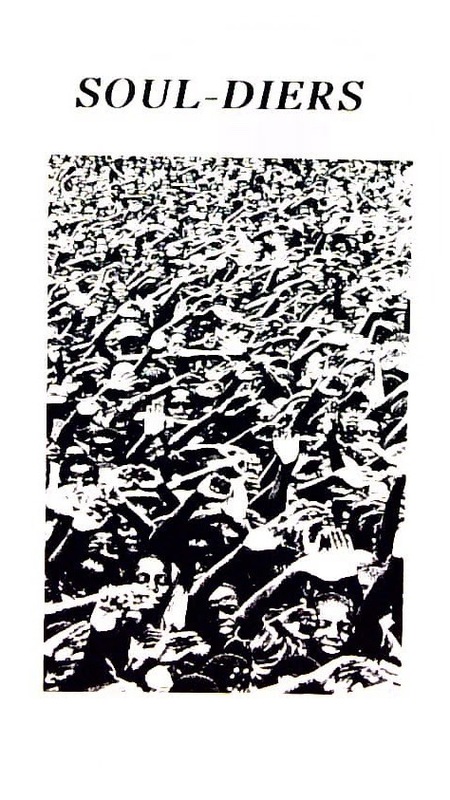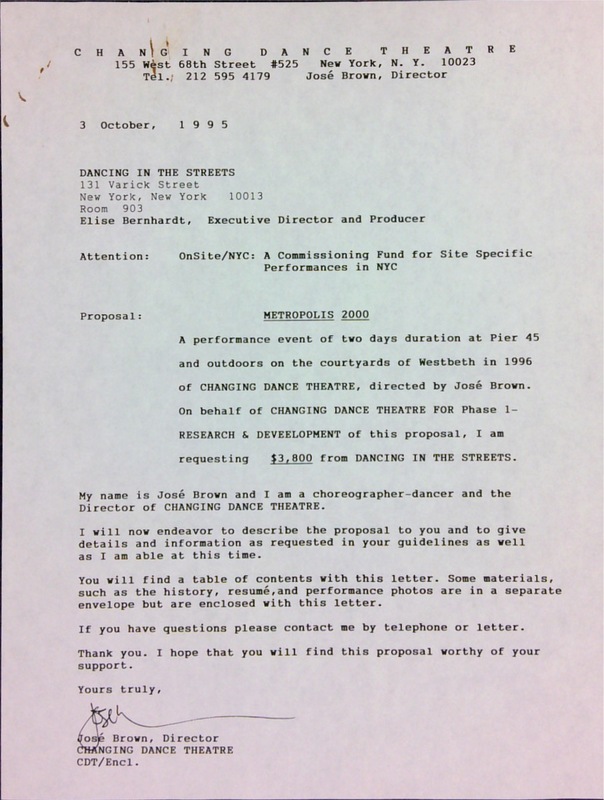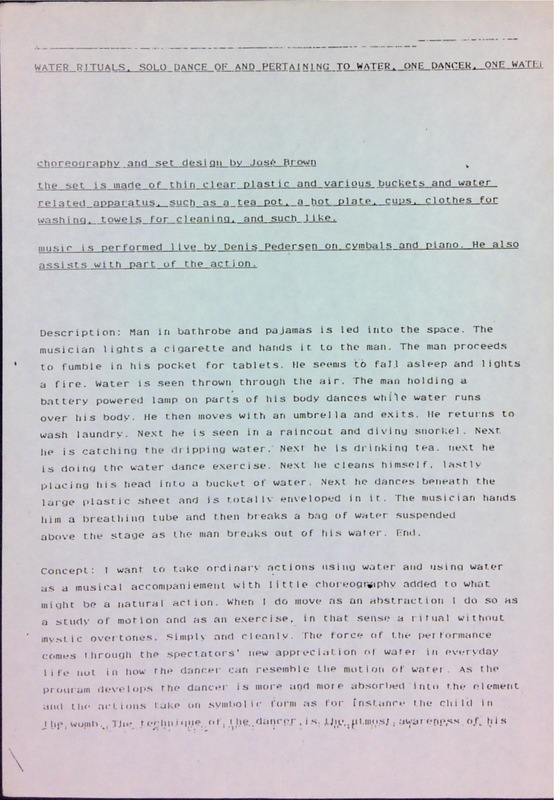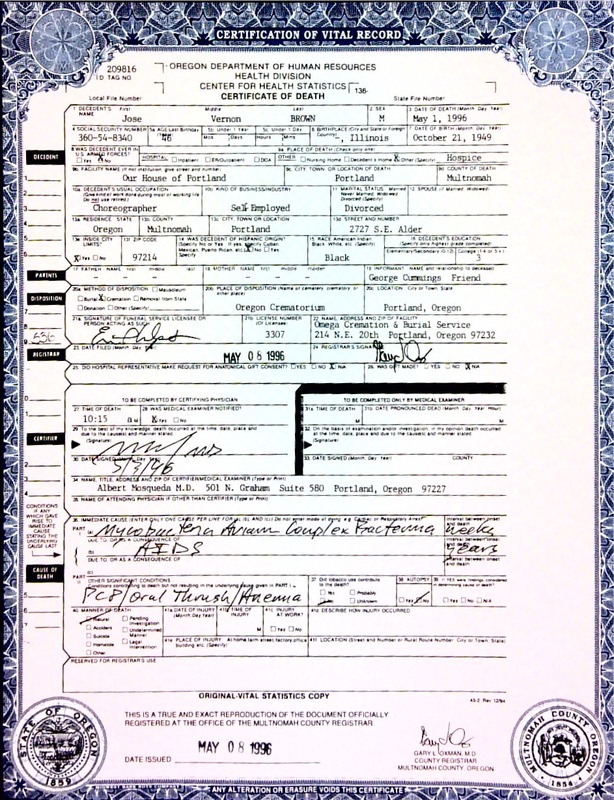End of Life
Date: 3/1/1995
Unable to obtain funding for a full project, Brown decided to put on a small scale improvisational piece right before he left the care and housing of Changing Dance Theatre’s Akemi Masaki. The program on the back went as follows:
“The title of this program, “Soldiers” was suggested to me by casting the I Ching. Soldiers at their worst are murderers and despots, and at their best they are defenders and liberators. In either case a soldier risks his/her life in combat. Even a nonviolent soldier.
My dance and my life are one. This program is improvised solo dancing. I would like to offer a program of choreography and dancers but my economic condition prohibits this.
Coincidentally I am Black, Gay, Native American, and H.I.V. positive. Technically I have A.I.D.S. as my T 4 cell count is 9. I have been H.I.V. positive for over eleven years. I do not expect to die of A.I.D.S. but I have come close to dying of poverty. Poverty is the greatest danger to our nation and to the world. Political organization is the only way to power. I am too independent to stay in an organization. Religion has always been my support. I cannot give my faith a name any more than I can describe my dance in one word.”
Date: 10/3/1995
Despite nearing the end of his life as Brown’s physical body started to deteriorate from over 10 years of being HIV positive, Brown was still sending out proposals for potential projects. Brown sent out many proposals for funding for the Changing Dance Theater that were almost always rejected, mentioning often in his journals and letters that he was having difficulty obtaining funding for his projects. Metropolis 2000 was likely conceived as a sequel to his previous work Satyricon 2000, but unfortunately Brown was unable to secure proper funding for this particular project and had to perform a toned-down version. Brown often made his own sets, costumes, and set design and expected the whole crew to work together to create the completed piece.
Estimated Date: 1995-1996
Despite Brown’s inability to secure funding or payment for his work, Brown continued to choreograph and stage produce his artistic visions confined to the medium of a typewriter and slowly failing body. In an interview with George Cummings, a long-time, close friend of Brown, Cummings recounted a story of the last time that Brown had been outside before his death shortly after. The two of them walked up half the steep hill of Mount Tabor Park, and although Brown had to eventually quit to rest, he remarked on what a great start it was on the road to health. “Water Rituals, Solo Dance of and Pertaining to Water, One Water” is another start that was never finished in the way Brown would like, a piece that mirrors “Over the Moon” in its classic Butoh dance pacing.
Date: 5/18/1996
Brown died May 1st, 1996. In a May 18th letter by George Cummings to Brown’s other loved ones, George wrote,
“By Sunday evening, April 28th, his breathing was rapid, noisy and painful. He seemed to be trying to say something with each breath, but I could only understand an occasional word. Monday evening he asked me to feed him some soup. He was only able to take eight small spoonfuls. By Tuesday evening he could not swallow anything. Conversation was no longer possible, but I did get him to consent to taking morphine. Until then he had been adamant in his refusal to take anything that might cloud his mind. He was still struggling when I left him. The next morning, Wednesday, he was resting more quietly when I stopped to see him on my way to work. He stirred and mumbled when I spoke to him but didn’t open his eyes. He died a few hours later at 10:15.
I do not know whether José ever accepted death. He did tell a gathering of his friends in early March that he didn’t want any memorial service if he died. He wanted us to cremate his body and scatter his ashes. But I never heard him mention dying again. He was determined to get better and carry on with work.
Akemi [Masaki] arrived from New York after José’s death in time for a short memorial gathering at the hospice. On Saturday, May 4th, seven of us, including Akemi, took José’s ashes to Cannon Beach and scattered them in the Pacific Ocean at the mouth of Ecola Creek. Jose had planned there to perform a ceremony. He didn’t tell anyone what it was.”



